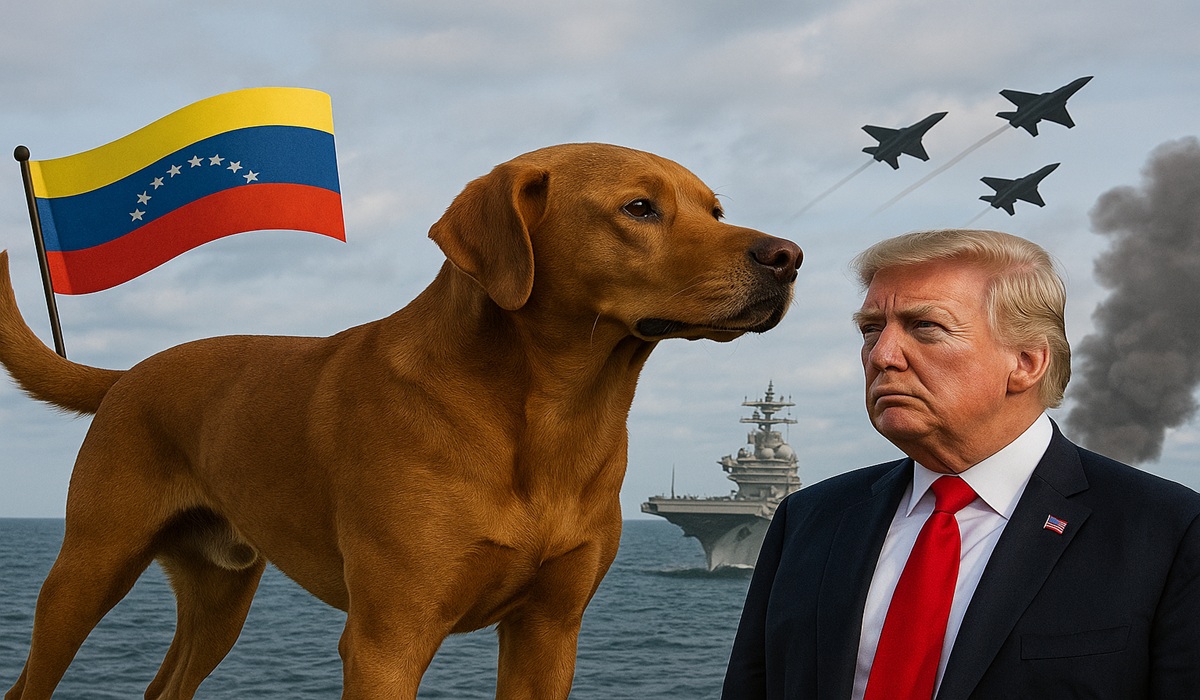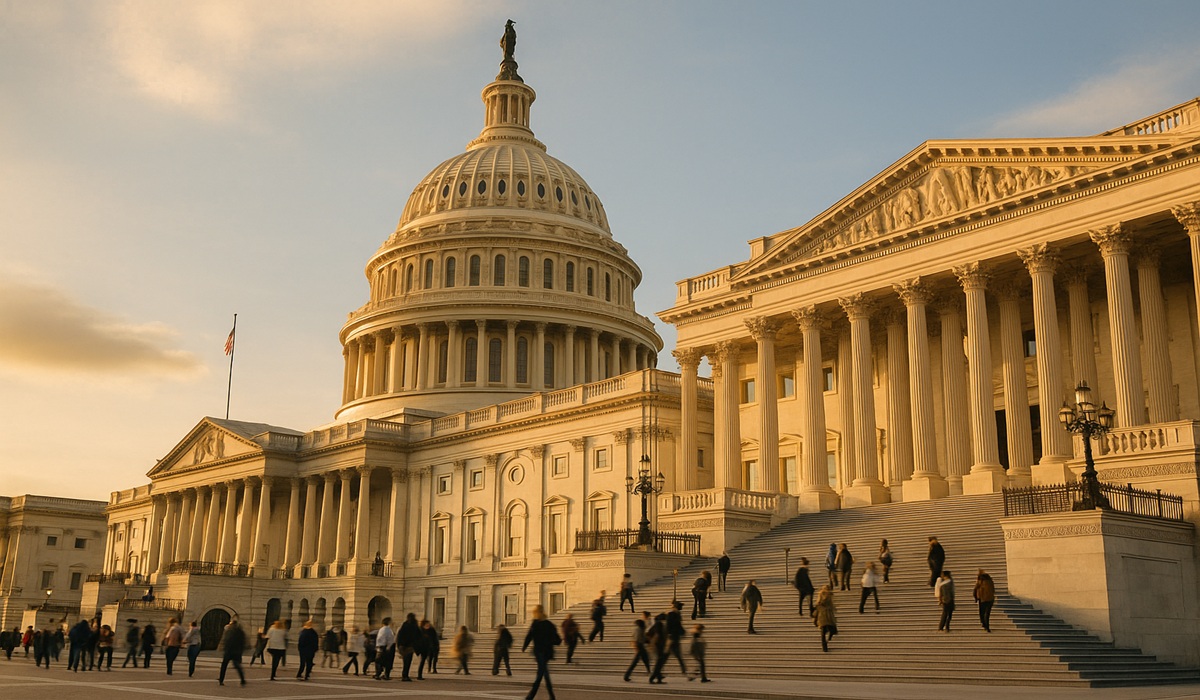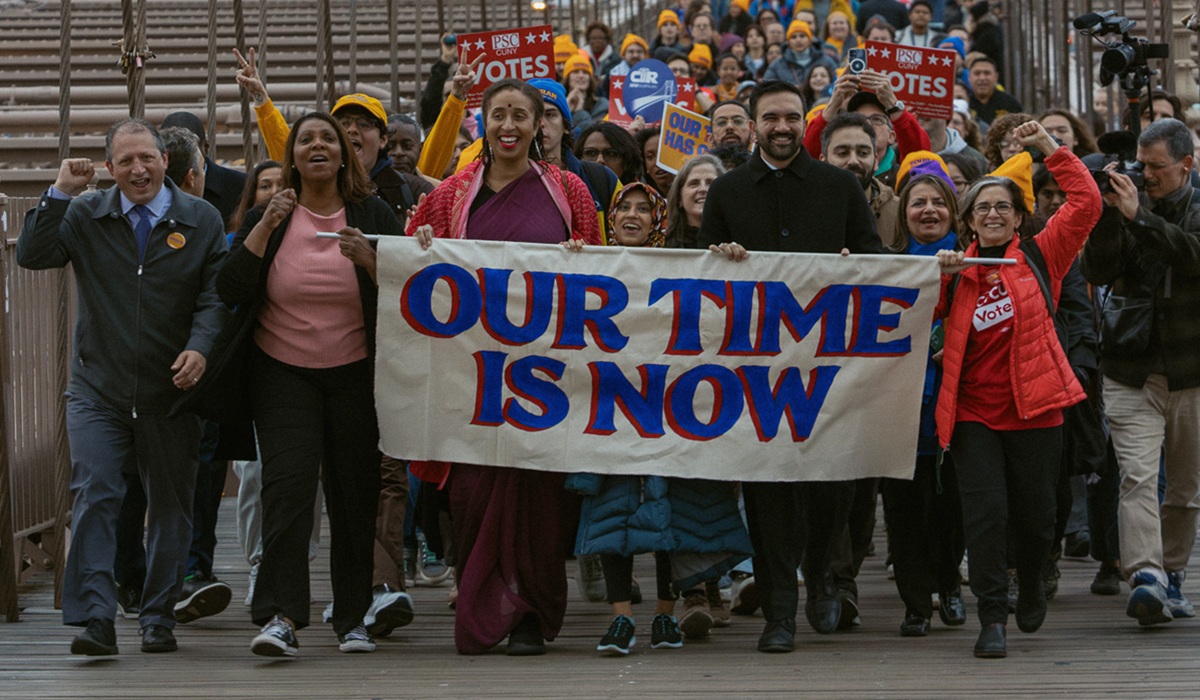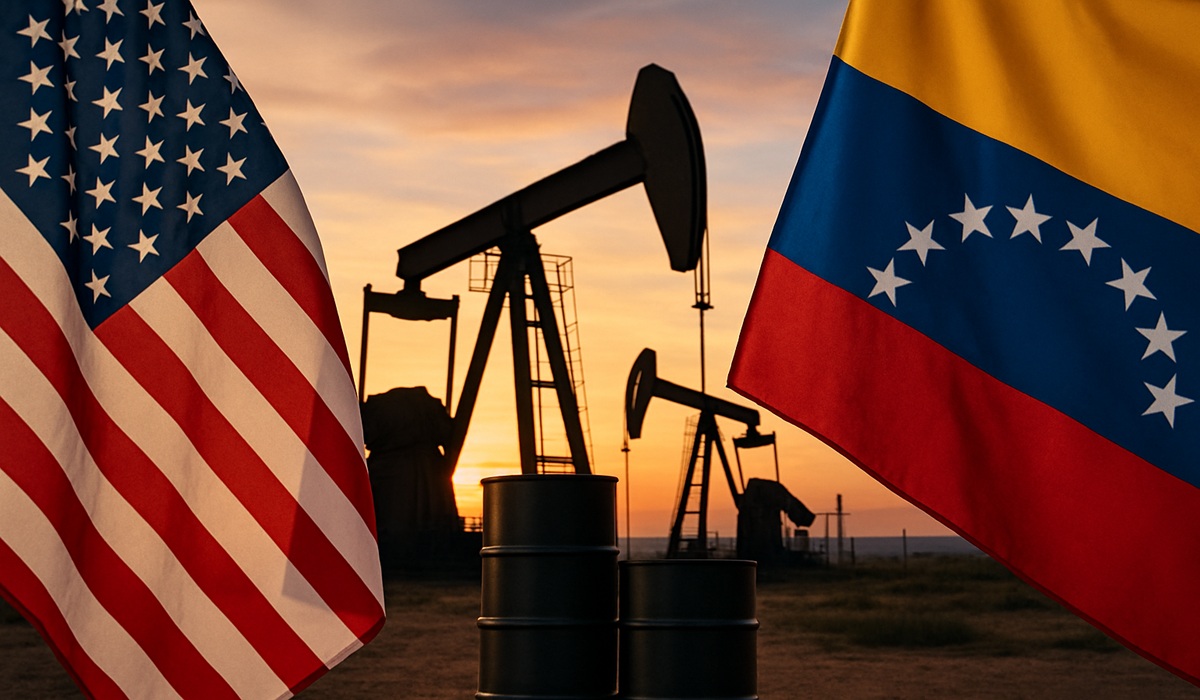Trump Administration Engaging In Extrajudicial Killings Disguised as Drug Deterrent in Venezuela
- TDS News
- U.S.A
- November 17, 2025

By: Donovan Martin Sr, Editor in Chief
What is unfolding between the United States and Venezuela is not occurring in a vacuum, nor can it be divorced from a long history of American military interventions that have repeatedly pushed, stretched, or ignored the boundaries of international law. For years, U.S. agencies have accused Venezuela’s government of facilitating drug trafficking, and Washington has used those allegations to justify increasingly aggressive military posturing in the Caribbean and the waters surrounding Venezuelan territory. Yet the actions now being taken—interdictions, lethal encounters at sea, and operations that critics argue resemble targeted killings—raise profound legal and moral questions. When force is used without transparent accountability, without the opportunity for due process, and without established judicial oversight, it steps squarely into the territory of extrajudicial violence. Whether one supports or opposes Nicolás Maduro’s government is irrelevant to that fundamental issue.
In the broader context of international law, sovereignty is one of the cornerstones of the global order. No government is permitted to launch lethal attacks inside or against another state without meeting strict thresholds of legality—namely self-defense, an imminent threat, or authorization by the United Nations Security Council. When a powerful nation undertakes killings based on its own unilateral determinations about who is a criminal, who is a trafficker, or who is a militant, it bypasses the structures designed precisely to prevent wars of convenience. If the roles were reversed—if a foreign navy fired upon U.S. vessels, claimed it suspected them of illicit trade, or openly discussed overthrowing the American government—the United States would immediately classify such actions as an act of war. There would be no debate, no nuance, and no tolerance for foreign intrusion into its territorial or political affairs.
The current escalation also cannot be separated from the legacy of drone warfare that expanded dramatically in the early 2000s. Under President George W. Bush, drone strikes became a central tool of counterterror operations. Under President Barack Obama, the frequency of those strikes surged even higher, reaching unprecedented levels across multiple regions. This is not speculation; it is part of the official reporting and historical record. The legal rationale was often the same: the targets were dangerous, the threat was imminent, and the window for action was too narrow for conventional judicial processes. The unavoidable reality is that thousands were killed under these programs, many of them in countries with which the United States was not formally at war. It set a precedent—a normalization of lethal force without transparency, without trial, and without meaningful oversight.
Today, that precedent is echoing loudly. The debate over who is a criminal, who is a militant, who is a threat has always been shaped by political agendas and geopolitical interests. Definitions of “terrorism” have shifted based on alliances, resources, and strategic priorities. The United States has supported some groups in one decade only to deem them hostile in the next. These shifting definitions benefit the powerful, not the principled. They allow governments, particularly wealthy and militarily dominant governments, to choose when to invoke human rights and when to set them aside.
This brings the conversation back to resources. Venezuela possesses among the largest proven oil reserves in the world. In every major U.S. foreign intervention of the past half-century, natural resources, strategic positioning, or economic leverage have played a central—if often unspoken—role. Major donors and corporate interests aligned with both Democratic and Republican administrations have long benefited from open access to markets and post-conflict reconstruction contracts. Any destabilization of Venezuela would create not only a power vacuum but a vast opportunity for foreign capital to shape the country’s economic direction. The Venezuelan people would bear the instability, while investors—particularly those backing American politicians—would stand to gain from privatization, reconstruction, and control over future exports.
The stated justification for Washington’s actions is narcotics trafficking. But here, too, the logic unravels. The largest suppliers of illegal drugs entering the United States are Mexico and Colombia. Fentanyl precursors originate largely in Asia before moving through Mexico. Cocaine trafficking routes overwhelmingly pass through Colombia and Central America. Marijuana is grown across several jurisdictions, and the United States itself remains one of the largest producers of synthetic drugs such as methamphetamine. If the objective were truly to militarily eradicate the drug trade, U.S. airstrikes would be falling on territories that are close allies—including areas within its own borders. That will not happen, because the drug trade is not the real catalyst for these escalations; it is a convenient political narrative. The fundamental issue of American drug demand—by far the largest driver of global narcotics production—is rarely confronted with equal urgency.
The danger now is that any miscalculation at sea could be used as a trigger. A Venezuelan patrol vessel responding to an incursion, a misunderstanding during a maritime inspection, or even an accident could be framed as hostile aggression. U.S. administrations of both parties have used similar incidents in the past to justify larger military engagements. History shows that when tensions are already inflamed, it does not take much to push a situation from covert hostility into open confrontation. The cost of such a conflict would be staggering: trillions in taxpayer dollars, the destabilization of an entire region, severe long-term damage to U.S.–Latin American relations, and the likely deaths of thousands of American and Venezuelan civilians and soldiers. Every country previously subjected to American intervention—from Iraq to Libya to Afghanistan—now lives with the consequences of fractured statehood, humanitarian crises, and long-term instability. Venezuela would be no exception.
This is why the escalation is so alarming under a president who campaigned on restraint and de-escalation. Instead of curbing foreign entanglements, the administration has presided over continued military spending, unconditional support for Israel’s devastating operations in Gaza, and a willingness to authorize strikes in several Middle Eastern countries, either directly or by proxy. The United States has bombed targets in Syria and supported actions in Lebanon. It continues to maintain an expansive military footprint across the region. These patterns contradict the image of an anti-war presidency and instead reinforce a longstanding bipartisan doctrine: American force can be used anywhere, anytime, and without accountability, so long as those actions can be framed as protecting U.S. interests.
The U.S.–Venezuela confrontation must be understood within this broader continuum. It is not simply about one country’s alleged role in narcotics trafficking. It is about the way powerful states operate beyond the constraints they impose on others. It is about the ability to justify lethal force without oversight. It is about the precedent that allows the world’s strongest military to sidestep international norms while demanding strict adherence from smaller nations. And it is about the repeating cycles of intervention that leave countries shattered and foreign investors enriched.
The tragedy is that none of this is inevitable. Diplomacy, mutual respect for sovereignty, and restraint are possible. But history suggests that when a major power senses an opportunity—economic, strategic, or ideological—it rarely chooses the path of patience. Instead, it relies on force, confident that its own citizens will never experience the consequences that are imposed on others. The Venezuelan people could once again find themselves living through a conflict they did not choose, facing a destabilization they did not cause, while the world watches another preventable crisis unfold.
The question is not whether Washington believes it has the capability to reshape Venezuela. It clearly does. The deeper, more unsettling question is why the lessons of Iraq, Afghanistan, Libya, and Syria—lessons etched in decades of bloodshed and collapse—continue to go unlearned.








